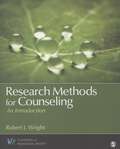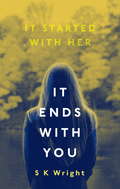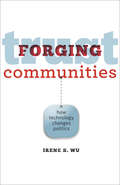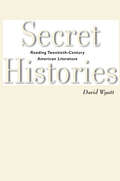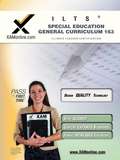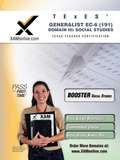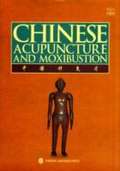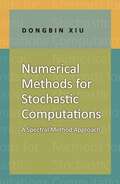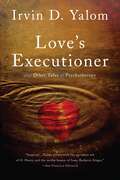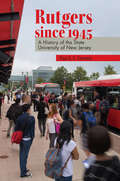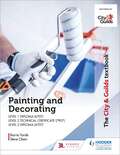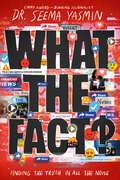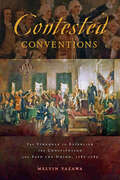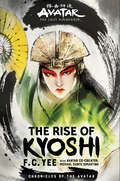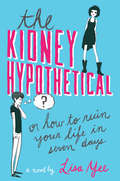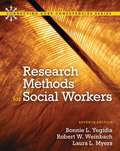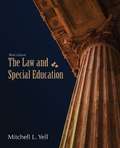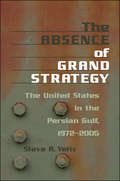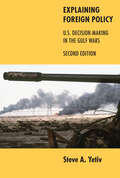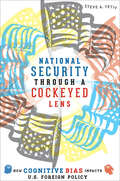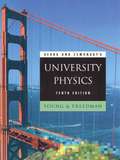- Table View
- List View
Money and Banking
by Robert E. WrightThe financial crisis of 2007-8 has already revolutionized institutions, markets, and regulation. Wright's Money and Banking V 2.0 captures those revolutionary changes and packages them in a way that engages undergraduates enrolled in Money and Banking and Financial Institutions and Markets courses.
Money and Banking
by Robert E. WrightThe financial crisis of 2007-8 has already revolutionized institutions, markets, and regulation. Wright's Money and Banking V 2.0 captures those revolutionary changes and packages them in a way that engages undergraduates enrolled in Money and Banking and Financial Institutions and Markets courses.
Money and Banking v 2.0
by Robert E. WrightThe financial crisis of 2007-8 has already revolutionized institutions, markets, and regulation. Wright's Money and Banking V 2.0 captures those revolutionary changes and packages them in a way that engages undergraduates enrolled in Money and Banking and Financial Institutions and Markets courses. Minimal mathematics, accessible language, and a student-oriented tone ease readers into complex subjects like money, interest rates, banking, asymmetric information, financial crises and regulation, monetary policy, monetary theory, and other standard topics. Numerous short cases, called "Stop and Think" boxes, promote internalization over memorization. Exercise drills ensure basic skills competency where appropriate. Short, snappy sections that begin with a framing question enhance readability and encourage assignment completion. The 2.0 version of this text boasts substantive revisions (additions, deletions, rearrangements) of almost every chapter based on the suggestions of many Money and Banking instructors. Some specific highlights are: Chapter 11 now contains enhanced descriptions of recent regulatory changes, including Dodd-Frank, Chapter 12 is an entirely new chapter on derivatives covering forwards, futures, options, and swaps that also including comprehensive treatment of the causes and consequences of financial crises, and Chapter 14 has updated discussions of the Federal Reserve's monetary policy tools, including paying interest on reserves, and the structure and leadership of the European Central Bank. Recent financial turmoil has increased student interest in the financial system but simultaneously threatens to create false impressions and negative attitudes. This up-to-date text by a dynamic, young author encourages students to critique the financial system without rejecting its many positive attributes. Peruse the book online now to see for yourself if this book fits the needs of your course and students.
Research Methods For Counseling: An Introduction
by Robert J. WrightResearch Methods for Counseling: An Introduction provides a rich, culturally sensitive presentation of current research techniques in counseling. Author Robert J. Wright introduces the theory and research involved in research design, measurement, and assessment with an appealingly clear writing style. He addresses ways to meet the requirements of providing the data needed to facilitate evidence-based therapy and interventions with clients, and also explains methods for the evaluation of counseling programs and practices. This comprehensive resource covers a broad range of research methods topics including qualitative research, action research, quantitative research including, sampling and probability, and probability-based hypothesis testing. Coverage of both action research and mixed methods research designs are also included.
It Ends With You
by S. K. Wright'A darkly clever teen murder mystery [...] that succeeds in undermining everything you've come to believe and trust. S K Wright pulls off a difficult trick with apparent ease' Crime ReviewIf I'd told the truth, it would have been fiction.Everyone loves Eva. Beautiful, bright, fun, generous - she's perfect. So when her body is found in a ditch in the local woods the only thing anyone wants to know is: Who could have done this?It has to be Luke, her boyfriend. He has the motive, the means, the opportunity and he's no stranger to the police. Even though the picture is incomplete, the pieces fit. But as time passes, stories change.Who could have done this? You decide.It Ends With You is clever and compulsive. It challenges preconceptions, makes you second-guess yourself with each chapter, and it holds an uncomfortable mirror up to the way societies and systems treat outsiders.
Forging Trust Communities: How Technology Changes Politics
by Irene S. WuTwenty historical case studies reveal how communication technology allows people to trust one another while mobilizing around a shared cause.Bloggers in India used social media and wikis to broadcast news and bring humanitarian aid to tsunami victims in South Asia. Terrorist groups like ISIS pour out messages and recruit new members on websites. The Internet is the new public square, bringing to politics a platform on which to create community at both the grassroots and bureaucratic level. Drawing on historical and contemporary case studies from more than ten countries, Irene S. Wu’s Forging Trust Communities argues that the Internet, and the technologies that predate it, catalyze political change by creating new opportunities for cooperation. The Internet does not simply enable faster and easier communication, but makes it possible for people around the world to interact closely, reciprocate favors, and build trust. The information and ideas exchanged by members of these cooperative communities become key sources of political power akin to military might and economic strength. Wu illustrates the rich world history of citizens and leaders exercising political power through communications technology. People in nineteenth-century China, for example, used the telegraph and newspapers to mobilize against the emperor. In 1970, Taiwanese cable television gave voice to a political opposition demanding democracy. Both Qatar (in the 1990s) and Great Britain (in the 1930s) relied on public broadcasters to enhance their influence abroad. Additional case studies from Brazil, Egypt, the United States, Russia, India, the Philippines, and Tunisia reveal how various technologies function to create new political energy, enabling activists to challenge institutions while allowing governments to increase their power at home and abroad. Forging Trust Communities demonstrates that the way people receive and share information through network communities reveals as much about their political identity as their socioeconomic class, ethnicity, or religion. Scholars and students in political science, public administration, international studies, sociology, and the history of science and technology will find this to be an insightful and indispensable work.
Secret Histories: Reading Twentieth-Century American Literature
by David WyattSecret Histories claims that the history of the nation is hidden—in plain sight—within the pages of twentieth-century American literature. David Wyatt argues that the nation's fiction and nonfiction expose a "secret history" that cuts beneath the "straight histories" of our official accounts. And it does so by revealing personal stories of love, work, family, war, and interracial romance as they were lived out across the decades of the twentieth century. Wyatt reads authors both familiar and neglected, examining "double consciousness" in the post–Civil War era through works by Charles W. Chesnutt, W. E. B. Du Bois, and Booker T. Washington. He reveals aspects of the Depression in the fiction of F. Scott Fitzgerald, Anzia Yezierska, and John Steinbeck. Period by period, Wyatt's nuanced readings recover the felt sense of life as it was lived, opening surprising dimensions of the critical issues of a given time. The rise of the women's movement, for example, is revivified in new appraisals of works by Eudora Welty, Ann Petry, and Mary McCarthy.Running through the examination of individual works and times is Wyatt's argument about reading itself. Reading is not a passive activity but an empathetic act of cocreation, what Faulkner calls "overpassing to love." Empathetic reading recognizes and relives the emotional, cultural, and political dimensions of an individual and collective past. And discovering a usable American past, as Wyatt shows, enables us to confront the urgencies of our present moment.
Cecil Textbook of Medicine, Volume 1 (19th Edition)
by James B. Wyngaarden Lloyd H. Smith Jr. J. Claude BennettTextbook on internal medicine, includes bibliographical references and index.
ILTS Special Education General Curriculum Test 163 Teacher Certification Test Prep Study Guide
by Sharon WynneIncludes 16 competencies/skills found on the ILTS Special Education General Curriculum test and 100 sample-test questions. This guide, aligned specifically to standards prescribed by the Illinois Department of Education, covers the sub-areas of Reading and Literacy; Mathematics; Natural Sciences; and Social Sciences.
TExES Teacher Certification Exam Domain III Social Studies Study Guide
by Sharon A. WynneThis manageable booster edition is a supplement to the Essentials Edition. This is the full Social Studies chapter from which the Essentials Edition core content is pulled. It covers 5 competencies and 86 skills. It also includes a 60 questions sample test. With XAMonline, aceing the TExES exam could not be easier!
Chinese Acupuncture and Moxibustion
by Xinnong Xinnong Cheng Qiwei Zheng Zhupan XieA detailed textbook on the principles of acupuncture and moxibustion.
Numerical Methods for Stochastic Computations: A Spectral Method Approach
by Dongbin XiuThe@ first graduate-level textbook to focus on fundamental aspects of numerical methods for stochastic computations, this book describes the class of numerical methods based on generalized polynomial chaos (gPC). These fast, efficient, and accurate methods are an extension of the classical spectral methods of high-dimensional random spaces. Designed to simulate complex systems subject to random inputs, these methods are widely used in many areas of computer science and engineering. The book introduces polynomial approximation theory and probability theory; describes the basic theory of gPC methods through numerical examples and rigorous development; details the procedure for converting stochastic equations into deterministic ones; using both the Galerkin and collocation approaches; and discusses the distinct differences and challenges arising from high-dimensional problems. The last section is devoted to the application of gPC methods to critical areas such as inverse problems and data assimilation. Ideal for use by graduate students and researchers both in the classroom and for self-study, Numerical Methods for Stochastic Computations provides the required tools for in-depth research related to stochastic computations. The first graduate-level textbook to focus on the fundamentals of numerical methods for stochastic computations Ideal introduction for graduate courses or self-study Fast, efficient, and accurate numerical methods Polynomial approximation theory and probability theory included Basic gPC methods illustrated through examples
Love's Executioner: & Other Tales of Psychotherapy
by Irvin D. YalomThe collection of ten absorbing tales by master psychotherapist Irvin D. Yalom uncovers the mysteries, frustrations, pathos, and humor at the heart of the therapeutic encounter. In recounting his patients' dilemmas, Yalom not only gives us a rare and enthralling glimpse into their personal desires and motivations but also tells us his own story as he struggles to reconcile his all-too human responses with his sensibility as a psychiatrist. Not since Freud has an author done so much to clarify what goes on between a psychotherapist and a patient.
Rutgers since 1945: A History of the State University of New Jersey
by Carla Yanni Paul G. ClemensIn the 1940s, Rutgers was a small liberal arts college for men. Today, it is a major public research university, a member of the Big Ten and of the prestigious Association of American Universities. In Rutgers since 1945, historian Paul G. E. Clemens chronicles this remarkable transition, with emphasis on the eras from the cold war, to the student protests of the 1960s and 1970s, to the growth of political identity on campus, and to the increasing commitment to big-time athletics, all just a few of the innumerable newsworthy elements that have driven Rutgers's evolution. After exploring major events in Rutgers's history from World War II to the present, Clemens moves to specific themes, including athletics, popular culture, student life, and campus dissent. Other chapters provide snapshots of campus life and activism, the school's growing strength as a research institution, the impact of Title IX on opportunities for women student athletes, and the school's public presence as reflected in its longstanding institutions. Rutgers since 1945 also features an illustrated architectural analysis, written by art historian Carla Yanni, of residence halls, which house more students than at any other college in the nation. Throughout the volume, Clemens aims to be balanced, but he does not shy away from mentioning the many conflicts, crises, and tensions that have shaped the university. While the book focuses largely on the New Brunswick campus, attention is paid to the Camden and Newark campuses as well. Frequently broadening the lens, Clemens contextualizes the events at Rutgers in relation to American higher education overall, explaining which developments are unique and which are part of larger trends. In celebration of the university's 250th anniversary, Rutgers since 1945 tells the story of the contemporary changes that have shaped one of the most ethnically diverse universities in the country. Table of Contents1 Becoming a State University: The Presidencies of Robert Clothier, Lewis Webster Jones, and Mason Gross2 Rutgers Becomes a Research University: The Presidency of Edward J. Bloustein3 Negotiating Excellence: The Presidencies of Francis L. Lawrence and Richard L. McCormick4 Student Life5 Residence Hall Architecture at Rutgers: Quadrangles, High-Rises, and the Changing Shape of Student Life, by Carla Yanni6 Student Protest7 Research at Rutgers8 A Place Called Rutgers: Glee Club, Student Newspaper, Libraries, University Press, Art Galleries9 Women's Basketball10 Athletic Policy11 Epilogue
The City & Guilds Textbook: Painting and Decorating for Level 1 and Level 2
by Barrie Yarde Steve OlsenBrush up on the skills you'll need for your career with this comprehensive new textbook published in association with City & Guilds and covering the 7907 and 6707 Painting and Decorating qualifications at Levels 1 and 2. Topic coverage includes areas such as preparing surfaces for decoration; applying paint using brushes, rollers and HVLP spray methods; and applying paper to walls and ceilings.- Test yourself and prepare for assessment with end of chapter questions and practical scenarios. - Build the skills you'll need to use regularly in the workplace with the 'Improve your maths' and 'Improve English' tasks. - Get ready for the workplace with Industry Tips; Health and Safety reminders; and guidance on values and behaviours.- Develop core skills with expert authors Barrie Yarde and Steve Olsen, who draw on their extensive teaching and industry experience.
What the Fact?: Finding the Truth in All the Noise
by Seema YasminFrom acclaimed writer, journalist, and physician Dr. Seema Yasmin comes a &“savvy, accessible, and critical&” (Kirkus Reviews, starred review) book about the importance of media literacy, fact-based reporting, and the ability to discern truth from lies.What is a fact? What are reliable sources? What is news? What is fake news? How can anyone make sense of it anymore? Well, we have to. As conspiracy theories and online hoaxes increasingly become a part of our national discourse and &“truth&” itself is being questioned, it has never been more vital to build the discernment necessary to tell fact from fiction, and media literacy has never been more important. In this accessible guide, Dr. Seema Yasmin, an award-winning journalist, scientist, medical professional, and professor, traces the spread of misinformation and disinformation through our fast-moving media landscape and teaches young readers the skills that will help them identify and counter poorly-sourced clickbait and misleading headlines.
Contested Conventions: The Struggle to Establish the Constitution and Save the Union, 1787–1789
by Melvin YazawaBrings to life the hard-fought battle over the creation and ratification of the Constitution.There is perhaps no more critical juncture in American history than the years in which Americans drafted the federal Constitution, fiercely debated its merits and failings, and adopted it, albeit with reservations. In Contested Conventions, senior historian Melvin Yazawa examines the political and ideological clashes that accompanied the transformation of the country from a loose confederation of states to a more perfect union.Treating the 1787–1789 period as a whole, the book highlights the contingent nature of the struggle to establish the Constitution and brings into focus the overriding concern of the framers and ratifiers, who struggled to counter what Alexander Hamilton identified as the "centrifugal" forces driving Americans toward a disastrous disunion. This concern inspired the delegates in Philadelphia to resolve through compromise the two most divisive confrontations of the Constitutional Convention—representation in the new Congress and slavery—and was instrumental in gaining ratification even in states where Antifederalist delegates comprised a substantial majority.Arguing that the debates over ratification reflected competing ideas about the meaning of American nationhood, Yazawa illuminates the nature of the crisis that necessitated the meeting at Philadelphia in the first place. Contested Conventions is a cohesive and compelling account of the defining issues that led to the establishment of the Constitution; it should appeal to history students and scholars alike.
Avatar, The Last Airbender: The Rise of Kyoshi (Chronicles of the Avatar #1)
by F. C. YeeAn instant USA Today and New York Times bestseller, F.C. Yee’s Avatar, the Last Airbender:The Rise of Kyoshi delves into the story of Kyoshi, the Earth Kingdom–born Avatar. Written in consultation with Michael Dante DiMartino, the visionary cocreator and executive producer of Avatar: The Last Airbender and The Legend of Korra animated TV series. The longest-living Avatar in this beloved world’s history, Avatar Kyoshi established the brave and respected Kyoshi Warriors, but she also founded the secretive Dai Li, which led to the corruption, decline, and fall of her own nation. The first of two novels based on Avatar Kyoshi in the Chronicles of the Avatar series, The Rise of Kyoshi maps her journey from a girl of humble origins to the merciless pursuer of justice who is still feared and admired centuries after she became the Avatar. “Yee artfully weaves in political entanglements as well as complex cultural identities to fully immerse readers in Kyoshi's world. . . . An action-packed tale that answers some long-awaited questions; fans will look forward to the promised sequel.”—Kirkus Reviews
The Kidney Hypothetical: Or How to Ruin Your Life in Seven Days (Arthur A Levine Novel Bks.)
by Lisa YeeLisa Yee gives us her most fascinating flawed genius since Millicent Min.Higgs Boson Bing has seven days left before his perfect high school career is completed. Then it's on to Harvard to fulfill the fantasy portrait of success that he and his parents have cultivated for the past four years. Four years of academic achievement. Four years of debate championships. Two years of dating the most popular girl in school. It was, literally, everything his parents could have wanted. Everything they wanted for Higgs's older brother Jeffrey, in fact. But something's not right. And when Higgs's girlfriend presents him with a seemingly innocent hypothetical question about whether or not he'd give her a kidney . . . the exposed fault lines reach straight down to the foundations of his life. . . .
Research Methods for Social Workers
by Bonnie L. Yegidis Robert W. Weinbach Laura L. MyersThis social work research methods text is written in an accessible, reader-friendly style and includes numerous examples of how research can be used to inform social work practice. It is part of the Connecting Core Competencies Series that integrates CSWE's core competencies and practice behaviors throughout.
The Law and Special Education (Third Edition)
by Mitchell L. YellIn the highly litigated area of Special Education, it is imperative that professionals in the field understand the legal requirements of providing a free appropriate public education to students with disabilities. This indispensable textbook prepares the reader with the essential skills to locate pertinent information in law libraries, on the Internet, and other sources to keep abreast of the constant changes and developments in the field. Now in the third edition, the entire textbook has been thoroughly updated and revised with the latest information on the statutes, regulations, policy guidance, and cases on special education law, as well as the most current information on: the Individuals with Disabilities Education Act, Section 504 of the Rehabilitation Act and the Elementary and Secondary Education Act, The Family Educational Rights and Privacy Act (FERPA), and the Health Insurance Portability and Accountability Act (HIPAA). Long-recognized as one of the top special education law books in the field, The Law and Special Education, Third Edition, presents the most important and necessary information for educators to understand the history and development of special education laws and the requirements of these laws in the field of special education.
The Absence of Grand Strategy: The United States in the Persian Gulf, 1972–2005
by Steve A. YetivGreat powers and grand strategies. It is easy to assume that the most powerful nations pursue and employ consistent, cohesive, and decisive policies in trying to promote their interests in regions of the world. Popular theory emphasizes two such grand strategies that great powers may pursue: balance of power policy or hegemonic domination. But, as Steve A. Yetiv contends, things may not always be that cut and dried. Analyzing the evolution of the United States' foreign policy in the Persian Gulf from 1972 to 2005, Yetiv offers a provocative and panoramic view of American strategies in a region critical to the functioning of the entire global economy. Ten cases—from the policies of the Nixon administration to George W. Bush's war in Iraq—reveal shifting, improvised, and reactive policies that were responses to unanticipated and unpredictable events and threats. In fact, the distinguishing feature of the U.S. experience in the Gulf has been the absence of grand strategy.Yetiv introduces the concept of "reactive engagement" as an alternative approach to understanding the behavior of great powers in unstable regions. At a time when the effects of U.S. foreign policy are rippling across the globe, The Absence of Grand Strategy offers key insight into the nature and evolution of American foreign policy in the Gulf.
Explaining Foreign Policy: U.S. Decision-Making in the Gulf Wars
by Steve A. YetivSteve A. Yetiv has developed an interdisciplinary, integrated approach to studying foreign policy decisions, which he applies here to understand better how and why the United States went to war in the Persian Gulf in 1991 and 2003. Yetiv’s innovative method employs the rational actor, cognitive, domestic politics, groupthink, and bureaucratic politics models to explain the foreign policy behavior of governments. Drawing on the widest set of primary sources to date—including a trove of recently declassified documents—and on interviews with key actors, he applies these models to illuminate the decision-making process in the two Gulf Wars and to develop theoretical notions about foreign policy. What Yetiv discovers, in addition to empirical evidence about the Persian Gulf and Iraq wars, is that no one approach provides the best explanation, but when all five are used, a fuller and more complete understanding emerges.Thoroughly updated with a new preface and a chapter on the 2003 Iraq War, Explaining Foreign Policy, already widely used in courses, will continue to be of interest to students and scholars of foreign policy, international relations, and related fields.
National Security through a Cockeyed Lens: How Cognitive Bias Impacts U.S. Foreign Policy
by Steve A. YetivHow poor decision making hurts U.S. national security."How do mental errors or cognitive biases undermine good decision making?" This is the question Steve A. Yetiv takes up in his latest foreign policy study, National Security through a Cockeyed Lens.Yetiv draws on four decades of psychological, historical, and political science research on cognitive biases to illuminate some of the key pitfalls in our leaders’ decision-making processes and some of the mental errors we make in perceiving ourselves and the world.Tracing five U.S. national security episodes—the 1979 Soviet invasion and occupation of Afghanistan; the Iran-Contra affair during the Reagan administration; the rise of al-Qaeda, leading to the 9/11 attacks; the 2003 U.S. invasion of Iraq; and the development of U.S. energy policy—Yetiv reveals how a dozen cognitive biases have been more influential in impacting U.S. national security than commonly believed or understood. Identifying a primary bias in each episode—disconnect of perception versus reality, tunnel vision ("focus feature"), distorted perception ("cockeyed lens"), overconfidence, and short-term thinking—Yetiv explains how each bias drove the decision-making process and what the outcomes were for the various actors. His concluding chapter examines a range of debiasing techniques, exploring how they can improve decision making.
University Physics (Tenth Edition)
by Young Roger A. Freedman T. R. Sandin A. Lewis FordNow in its commemorative Tenth Edition, this book remains a classic. Adhering to the highest standards of integrity and incorporating some of the findings of current research in physics, it enables readers to develop physical intuition and build strong problem-solving skills. It also points out conceptual and computational pitfalls that commonly plague beginning physics students and provides them with explicit strategies for analyzing physical situations and solving problems.

